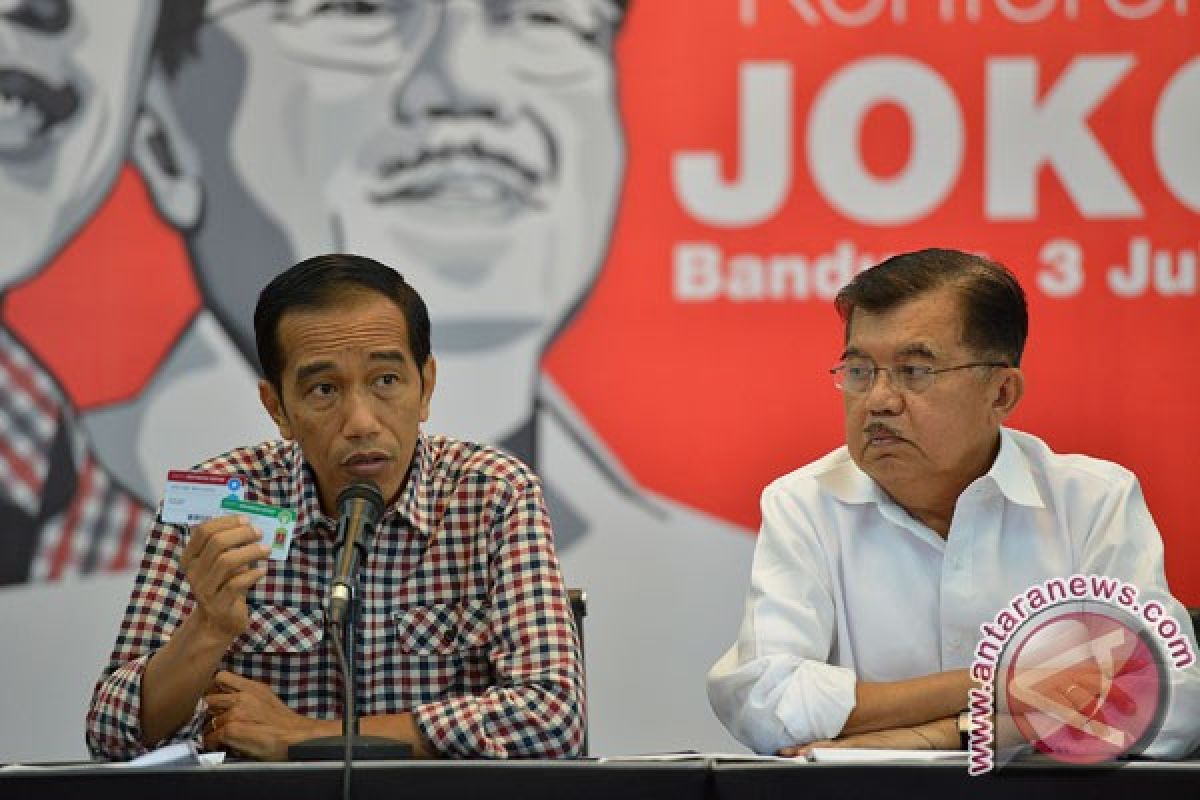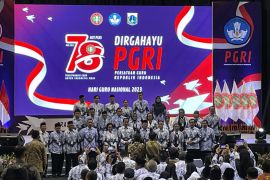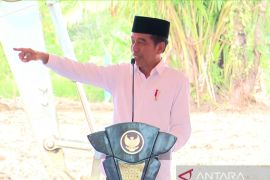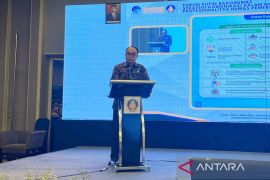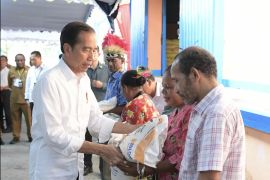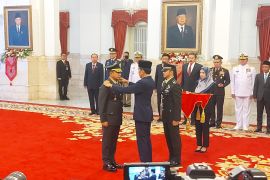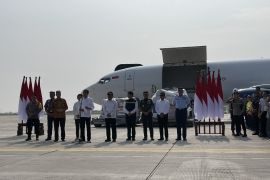The most important thing, meanwhile, is development of human resources for the poor ..."Jakarta (ANTARA News) - An observer has hailed the nine-point program offered by the Indonesian presidential candidate Joko Widodo-M. Jusuf Kalla (Jokowi-JK) ticket as a really comprehensive policy to help the marginalized.
Erwan Agus Purwanto, the dean of the Department of Socio-Political Studies of the Gajahmada University in Yogyakarta, said in a written statement received here on Saturday that the development program in the country in the past decade had been become an irony.
On the one hand, it had made the economy grow and become stable to include the country as one of the middle-income states, with symbols of prosperity clearly seen and easily proven, such as booming property development, soaring car sales and a rise in sales of luxury goods, he said.
On the other, however, it had also widened the gap between the rich and the poor, he added.
The Gini Ratio in Indonesia, at present, is recorded at 0.41, drastically increasing from 0.33 ten years ago, he added.
"The implication is that the rich group, which is only a small portion of around 250 million in Indonesia, enjoys abundant wealth," Erwan said.
The biggest proportion of the population, meanwhile, has been put into the category of the marginalized group. This includes farmers, small business owners, fishermen and unemployed people, he said.
In view of the conditions, he saw the Jokowi-JK tickets nine-point program as a real attempt to help the marginalized group through a comprehensive policy, Erwan said.
The nine-point program includes poverty alleviation, redistribution of economic sources especially land, development of vital economic facilities for the poor such as farming infrastructure, traditional market places and fish auction places.
In addition to these, there are also provisions for basic facilities in the health and education sectors.
"The most important thing, meanwhile, is development of human resources for the poor through improvement of general education services and Islamic boarding schools," he said.
"Seeing the program it was clearly evident that the Jokowi-JK duo wished to show that the state must be present and side with the poor and the marginalized, so that they may become good quality, self-sufficient and well-off citizens," Erwan said.
An important thing that needs to be underlined was that the Jokowi-JK pair has the right strategy to assure that their programs could be implemented smoothly, he said.
The strategy covers improvement of the professionalism of state apparatus, the TNI (military) and the police including village apparatus who are the spearheads for achieving the goals of the program, he said.
However well a program has been designed, unless it is supported by good implementation it becomes mere hollow promises, he said.
"With regard to implementation of their vision and mission, the Jokowi-JK pair has already given evidence in their track records so far. Jokowi was Solo city mayor and Jakarta governor, and Jusuf Kalla, a vice president," he added.
Indonesia will conduct a democratic presidential election on July 9, 2014, which will be contested by two pairs of presidential and vice presidential candidates: Prabowo Subianto-Hatta Rajasa and Jokowi-Jusuf Kalla (JK).
Prabowo Subianto is a retired military general and the chairman of the Great Indonesia Movement Party (Gerindra), while his running mate, Hatta Rajasa, is a former coordinating minister for economic affairs and the chairman of the National Mandate Party (PAN).
Jokowi is Jakartas governor and a cadre of the Indonesian Democratic Party of Struggle (PDIP), while his running mate, JK, is a former vice president and a senior politician of the Golkar Party.
The Prabowo-Hatta pair is supported by Gerindra, PAN, the Prosperous Justice Party (PKS), the United Development Party (PPP), the Crescent and Star Party (PBB), the Golkar Party, and the Democrat Party.
The Jokowi-JK pair is supported by five political parties: PDIP, the Nation Awakening Party (PKB), the Peoples Conscience Party (Hanura), the Justice and Indonesian Unity Party (PKPI), and the National Democrat Party (Nasdem).
(Reporting by Syaiful Hakim/Uu.H-YH/INE/KR-BSR/O001)
Editor: Priyambodo RH
Copyright © ANTARA 2014
